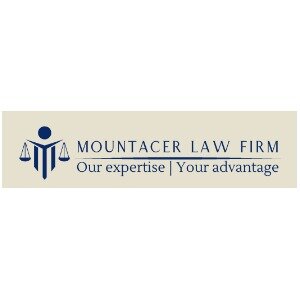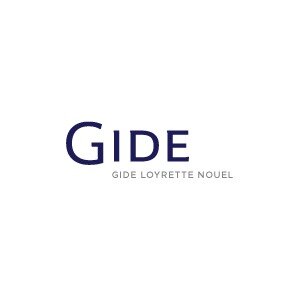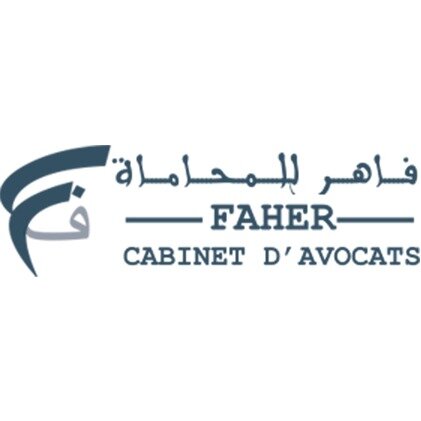Best New Business Formation Lawyers in Morocco
Share your needs with us, get contacted by law firms.
Free. Takes 2 min.
Or refine your search by selecting a city:
List of the best lawyers in Morocco
Morocco New Business Formation Legal Questions answered by Lawyers
Browse our 1 legal question about New Business Formation in Morocco and read the lawyer answers, or ask your own questions for free.
- I am a tourist and I have been scammed by my accountant in Morroco...my only proof left are the massages which we exchange,are WhatsApp massages considering an evidence?
- My accountant asked me 12000 euros to open a company, during the whole process he played a lot with me giving me false information, one day I fed up with him so I changed accountant when I was about to transfer my company, my new accountant, said my company is... Read more →
-
Lawyer answer by AKT ADVISOR LLP
Hello Sir, Sorry to hear that. Yes you can use all proof to show that he scam you. If you need reach our firm to advise you on that.
Read full answer
About New Business Formation Law in Morocco
Starting a new business in Morocco involves navigating a legal landscape designed to support economic growth and entrepreneurship while ensuring compliance with local regulations. The Moroccan government has established a framework that aims to facilitate business creation, foster innovation, and attract foreign investment. Business formation can be subject to national laws, local regulations, and sector-specific rules, making it crucial for prospective business owners to understand the foundational elements of Moroccan business law.
Why You May Need a Lawyer
Engaging a lawyer during the new business formation process can be critical for several reasons. Legal professionals can provide guidance on choosing the appropriate business structure, ensuring compliance with regulatory requirements, drafting partnership agreements, and protecting intellectual property. Additionally, they can help navigate taxation issues, liaise with governmental bodies, and assist with conflict resolution. With a lawyer's expertise, the business formation process can be smoother, more efficient, and legally sound.
Local Laws Overview
Morocco’s business laws are primarily governed by the Commercial Code and the OHADA (Organization for the Harmonization of Business Law in Africa) Treaty. Key aspects include:
- Business Structures: Options include sole proprietorships, limited liability companies (SARLs), public limited companies (SAs), and partnerships. Each structure has distinct legal and tax implications.
- Registration: Businesses must register with the Moroccan Trade Register and comply with sector-specific requirements.
- Taxation: Understanding corporate tax rates, VAT, and other tax regimes is crucial. Morocco offers incentives for startups in certain industries.
- Labor Laws: Employers must adhere to labor regulations regarding contracts, wages, and worker’s rights.
- Permits and Licenses: Depending on the business type and industry, obtaining specific permits can be mandatory.
Frequently Asked Questions
1. What is the first step in forming a new business in Morocco?
The first step is deciding on the legal structure of your business. Once that is established, you will need to register your company with the Trade Register.
2. What types of business structures are available in Morocco?
The common business structures are sole proprietorship, limited liability company (SARL), public limited company (SA), and partnerships. Each has specific legal implications and benefits.
3. How long does it take to register a business in Morocco?
Registering a business can take anywhere from a few days to several weeks, depending on the complexity of the business and the completeness of the required documentation.
4. What documents are required for business registration?
Commonly required documents include identification, a notarized company statute, a declaration of subscription of shares, and proof of legal occupancy for the business address.
5. Are there any specific sectors that require special permits or licenses?
Yes, sectors such as pharmaceuticals, real estate, and finance may require specific permits or licenses to operate legally in Morocco.
6. What taxes should a new business expect to pay?
Businesses in Morocco are generally required to pay corporate tax, value-added tax (VAT), and certain sector-specific taxes. Tax incentives may be available for certain types of businesses.
7. Can a foreigner fully own a business in Morocco?
Yes, foreign ownership is generally permitted, and in some industries, foreign investors can hold 100% ownership. However, specific regulations may apply based on the business activity.
8. What support does the Moroccan government offer for startups?
The Moroccan government offers various incentives including financial support, tax breaks, and assistance through agencies like the Moroccan Investment and Export Development Agency (AMDIE).
9. How important is it to hire local employees?
Hiring local employees can be beneficial due to their understanding of the market and local customs. Legal compliance with Moroccan labor laws is also essential when hiring.
10. What happens if my business plans to expand internationally?
Businesses planning international expansion should consider foreign investment regulations, cross-border taxation, and international trade agreements, with legal advice being crucial for a smooth transition.
Additional Resources
For additional guidance, consider consulting the following resources:
- The Moroccan Investment and Export Development Agency (AMDIE)
- The Regional Investment Centers (CRI)
- The General Confederation of Moroccan Enterprises (CGEM)
- Local chambers of commerce
- Legal databases such as LexisNexis for Moroccan law
Next Steps
If you're in need of legal assistance for new business formation in Morocco, consider the following steps:
- Contact a legal professional specializing in Moroccan business law.
- Schedule consultations to discuss your business plan and legal requirements.
- Prepare your documentation and outline the specific needs for your business.
- Work with your lawyer to navigate the registration process, ensuring compliance with all Moroccan laws and regulations.
Proactive legal consultation can streamline your process and provide peace of mind as you embark on this new venture.
Lawzana helps you find the best lawyers and law firms in Morocco through a curated and pre-screened list of qualified legal professionals. Our platform offers rankings and detailed profiles of attorneys and law firms, allowing you to compare based on practice areas, including New Business Formation, experience, and client feedback.
Each profile includes a description of the firm's areas of practice, client reviews, team members and partners, year of establishment, spoken languages, office locations, contact information, social media presence, and any published articles or resources. Most firms on our platform speak English and are experienced in both local and international legal matters.
Get a quote from top-rated law firms in Morocco — quickly, securely, and without unnecessary hassle.
Disclaimer:
The information provided on this page is for general informational purposes only and does not constitute legal advice. While we strive to ensure the accuracy and relevance of the content, legal information may change over time, and interpretations of the law can vary. You should always consult with a qualified legal professional for advice specific to your situation.
We disclaim all liability for actions taken or not taken based on the content of this page. If you believe any information is incorrect or outdated, please contact us, and we will review and update it where appropriate.
Browse new business formation law firms by city in Morocco
Refine your search by selecting a city.

















